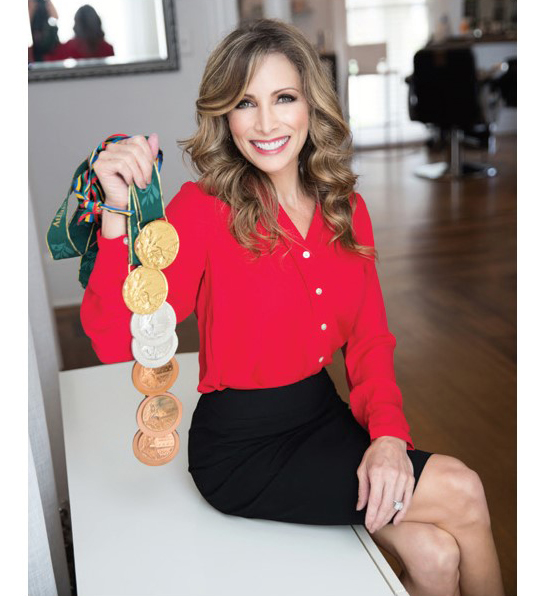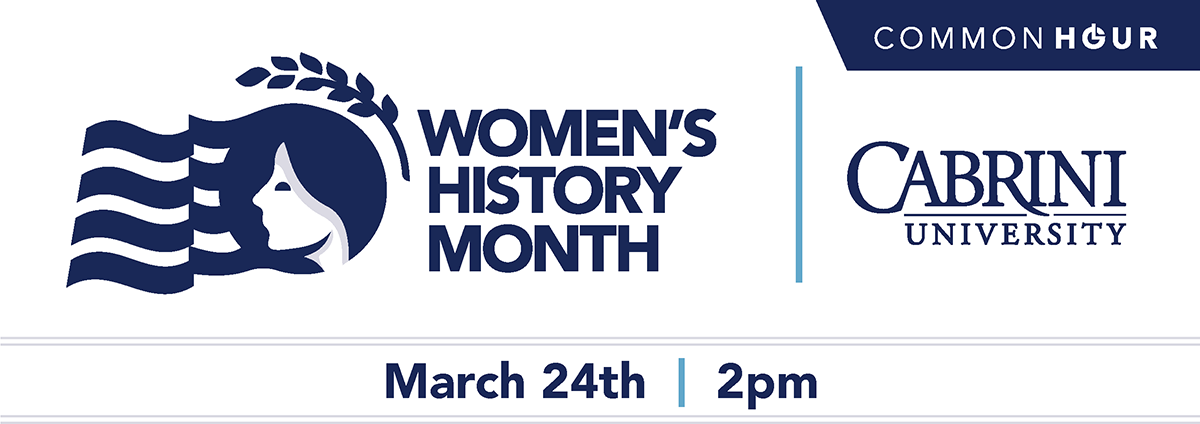 Seven-time Olympic medalist Shannon Miller shared lessons learned from her gymnastics career and journey to overcome cancer during a Common Hour discussion on Wednesday, March 24. Hosted by Michelle Filling-Brown, Dean, School of Humanities and Social Sciences, this virtual event in celebration of Women’s History Month, “Women’s Excellence in Athletics,” engaged the community on the importance of preparation, self-confidence, and teamwork.
Seven-time Olympic medalist Shannon Miller shared lessons learned from her gymnastics career and journey to overcome cancer during a Common Hour discussion on Wednesday, March 24. Hosted by Michelle Filling-Brown, Dean, School of Humanities and Social Sciences, this virtual event in celebration of Women’s History Month, “Women’s Excellence in Athletics,” engaged the community on the importance of preparation, self-confidence, and teamwork.
“My career was a lot less about the medals, and more about the failures and the challenges I had to overcome along the way,” said Miller, whose gold medal win on the balance beam at the 1996 Summer Olympics in Atlanta led the United States women—dubbed the Magnificent Seven—to their first team gold. “I love that I get to talk with you all during Women’s History Month. It’s a fantastic reminder of all the women who have helped me get where I am I’m at.”
Though Miller remains the United States’ most decorated female Olympian of all time with seven medals and was the first American gymnast to win back-to-back world all-around titles, she admitted that she had moments of self-doubt along the way. After a miscue on the vault in competition, Miller remembered asking her mother if she belonged on the Olympic stage. Her mother said the only the thing that mattered was that Miller had worked as hard as she could to prepare.
“Whenever I need to get back up and keep going, I think of that moment,” Miller told the audience of students, faculty, and staff.
Though gymnastics is a sport comprised of individual events, Miller said her victories were not earned in a vacuum.
“You don’t win a gold medal by yourself,” she said. “When I think of team, I think of my parents and how much they supported me, my coaches who worked so hard, and my community and teachers, who helped me keep up with my education while chasing this Olympic dream. You have to ask who you can rely on in times of need.”
After retiring from gymnastics, Miller said she began to lose appreciation for teamwork. That was before she was diagnosed with ovarian cancer in January 2011.
“The first week of chemo was the hardest thing I’ve had to do,” Miller said. “I remember thinking, ‘I don’t think I can do this. I don’t know how to do this.’ At this lowest moment, a nurse walked in. It was if that word ‘team’ came flooding back to me.
“You never know what little action will give someone hope.”
With the support of her medical team as well as her family and friends, Miller was declared cancer-free in fall 2011. It was in her post-cancer return to private life—Miller is a health and fitness entrepreneur as well as a gymnastics television analyst—that she developed what she calls the “gold medal mindset.”
“You don’t have to wear a leotard or swim like Michael Phelps,” she said. “The gold medal mindset is about going out there and winning the day. It means setting goals and committing myself to excellence.”
Miller, whose memoir It's Not About Perfect: Competing for My Country and Fighting for My Life was published in 2015, explained that she didn’t understand what a commitment to excellence meant when she was younger: “I thought it meant you had to be perfect.”
“We have control over a few things—how hard we work and our attitude,” Miller said. “But if we strive for excellence every day, we’ll make fewer mistakes. The Olympic medal is not won the day of the competition.”
